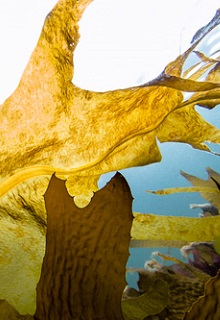Study reaffirms the nutritional value of algae

A new study published in the Journal of the Science of Food and Agriculture explores how algae can be an excellent source of vitamin B12 and fucose for fortified food and beverages.
Consumers are increasingly looking for new food and beverage products that address their nutritional needs without compromising on taste. In this study, nine edible algae were formulated in fresh fruit and vegetable smoothies to ascertain bioactive contents and changes in quality.
The research found that brown algae – wakame, kombu and thongweed – were high in fucose which can be attributed to their rich source of fucoidan. Fucose is one of the eight essential sugars that is required for cell-to-cell communications in the body and is essential for immune and nerve function.
Microalgae Chlorella and Spirulina showed the highest levels of vitamin B12, with wakame also being noted for its high vitamin B12 content. It was concluded that in general, the refrigerated shelf life of algae smoothies based on microbiological and sensory quality was around 17 days.
Vitamin B12 is a nutrient required for the production of healthy red blood cells, nerve cells and DNA. As it cannot be synthesised by the body, any sources of vitamin B12 must be obtained from the food we eat. The authors noted that vitamin B12 fortification of fruit or vegetable smoothies with algae may have high relevance in the food industry to cover the nutritional needs of consumers in food products. These findings may be particularly relevant to vegetarian and vegan products, as mainstream dietary sources of vitamin B12 are obtained from animal-based ingredients.
With fruit and vegetable consumption below the recommended intake, this research highlights that algae ingredients can be an excellent source of fucose and vitamin B12 for fortified food to address the nutritional needs of consumers in food and beverage products.